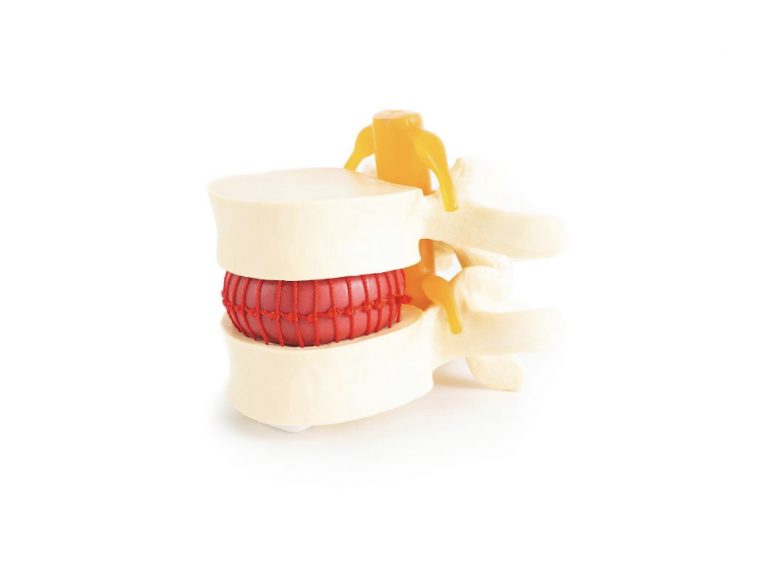What is Degenerative Disc Disease
Degenerative disc disease is a condition where the spinal discs begin to break down due to changes caused by the natural aging process. The discs in the spinal column are responsible for cushioning the spinal vertebrae allowing them to bend and flex. However, over time, they lose elasticity and height due to the loss of water and protein content. This makes them less able to hold their shape and more prone to develop bulges, tears, and ruptures.
If you suspect your neck pain, back pain, or other symptoms may be related to a spine condition like DDD, you should see your doctor for an accurate diagnosis and treatment plan. The following information about degenerative disc disease symptoms and diagnosis is intended to help you be more engaged and confident as a patient, allowing you to better work with medical professionals to get the relief you deserve.
Common Symptoms
The symptoms of degenerative disc disease can affect any part of the body. Because spinal discs are in close proximity to the spinal cord and its nerve roots, a damaged disc can affect nerves that run to all parts of the body – shoulders, hands, legs, feet, toes, etc. Within these different areas you may experience:
- Local pain
- Burning pain that runs along the length of a compressed nerve
- Numbness
- Tingling
- Weakness
- Cramping and muscle spasms
The location of traveling symptoms corresponds to the location of nerve compression in the spinal column with the lumbar (lower) spine affecting the lower body and the cervical (upper) spine affecting the neck, shoulders, and hands.
Degenerative Disc Disease Diagnosis And Treatment
To diagnose this condition, doctors usually ask questions about the severity and location of symptoms, your and your family’s medical history as well as perform a physical examination to test for a range of motion and painful areas and movements. Diagnostic testing, such as an X-ray or MRI, will also often be performed to pinpoint the location of nerve compression.
Initial treatment for DDD usually involves conservative methods like medication and physical therapy. However, surgery will become an option if weeks or months of these and other treatments don’t bring relief. BEST Health System offers minimally invasive outpatient spine surgery. It is a safer and more effective alternative to traditional open neck or back surgery. Moreover, it offers our patients a lower complication rate and no lengthy recovery.
If you’d like to find out if you’re a potential candidate for one of our procedures, contact us today!
